Global hunger and malnutrition are at crisis levels, with the number of people who are hungry today more than double that of 2020.
More than 345 million people are estimated to experience severe food insecurity in 2023 alone, according to the World Food Program (WFP)
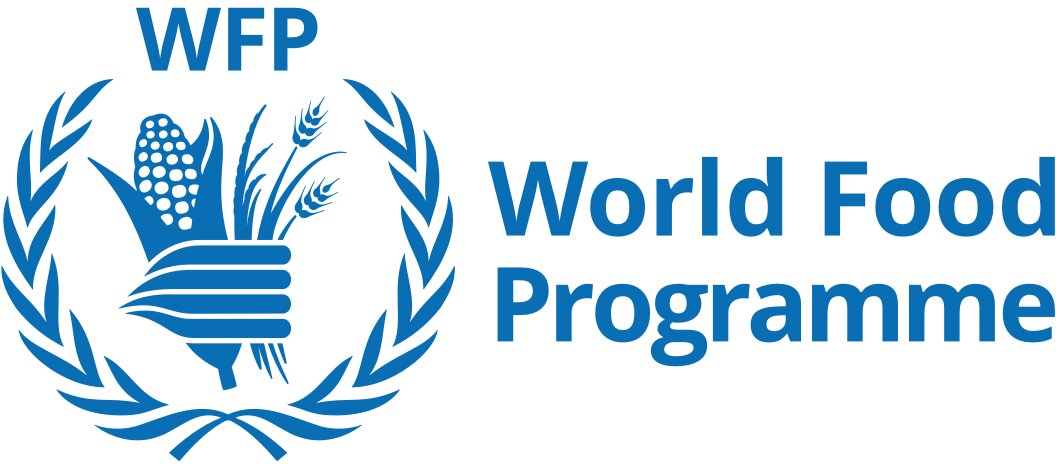
The WFP also notes the alarming situation of over 900,000 individuals worldwide battling catastrophic hunger and on the brink of famine.
This figure is tenfold that of five years ago, indicating a rapid increase and urgent action is imperative to address this pressing issue.
Over the past three decades, there has been a significant advancement in the field of plant genetics, leading to the creation and utilization of various innovative breeding techniques.
Scientists shared insights on the latest promising breeding techniques and scientific innovations for crop improvement.
This breakthrough has the potential to make a valuable contribution to achieving Sustainable Development Goal number 2, which focuses on ending hunger, achieving food security and improving nutrition, and promoting sustainable agriculture.
Furthermore, a better diet helps achieve Sustainable Development Goal number 3, as consuming food with higher nutritional value promotes healthier living and improved well-being.
On June 2, 2023, the West Africa Center for Crop Improvement (WACCI) and the Alliance for Science hosted the International Symposium on Agricultural Transformation and Biotech Crops in Africa.
“In today’s world, when the challenges are becoming too serious, the power of science and technology can offer sustainable solutions.”
The event, which was held in Accra, Ghana, focused on exploring ways for agricultural sector stakeholders to increase farmer access to crops produced using new breeding techniques (NBTs).
Scientists shared insights on the latest promising breeding techniques and scientific innovations for crop improvement.
“If we invest in good inputs, there would be an agricultural transformation, and we can see the possibility of ending hunger in our lifetime.”
The event, themed Increasing Access to New Tools, Technologies, and Methods (TTMs) in Africa’s Agriculture, also tackled the challenges hindering the rapid adoption of biotechnologies in Africa, including myths around them.
The discussion also delved into the social, cultural, political, and economic implications if more African countries adopt new breeding techniques.

Prof Eric Yirenkyi Danquah, the founding director of WACCI, recognized climate crisis and population growth and their impact on agriculture.
He urged Africa to take greater responsibility for achieving self-sufficiency in food production during these challenging times.
Eight African countries have approved or commercialized four genetically modified crops focusing on pest resistance and drought tolerance.
He said he was confident the symposium would provide an opportunity for individuals to share knowledge, collaborate, and exchange innovative research.
He added that the event aimed to explore the latest advancements in plant biotechnology, specifically plant genome-editing tools such as clustered regularly interspaced short palindromic repeats and CRISPR-associated protein 9 (CRISPR-Cas9).
The GM crops market in Africa was valued at approximately 615.4 million dollars in 2018 and is expected to grow by five percent, reaching an estimated 871 million dollars by 2025.
“In today’s world, when the challenges are becoming too serious, the power of science and technology can offer sustainable solutions,” he said.
“Plant biotechnology and genome editing offer a tremendous opportunity to address the challenges by enhancing crop productivity, improving disease resistance, and ensuring environmental sustainability.”
He proposed that the partnership between WACCI and the Alliance for Science be transformed into an annual gathering to discuss new tools, technology, and methods for revolutionizing agriculture in Africa.
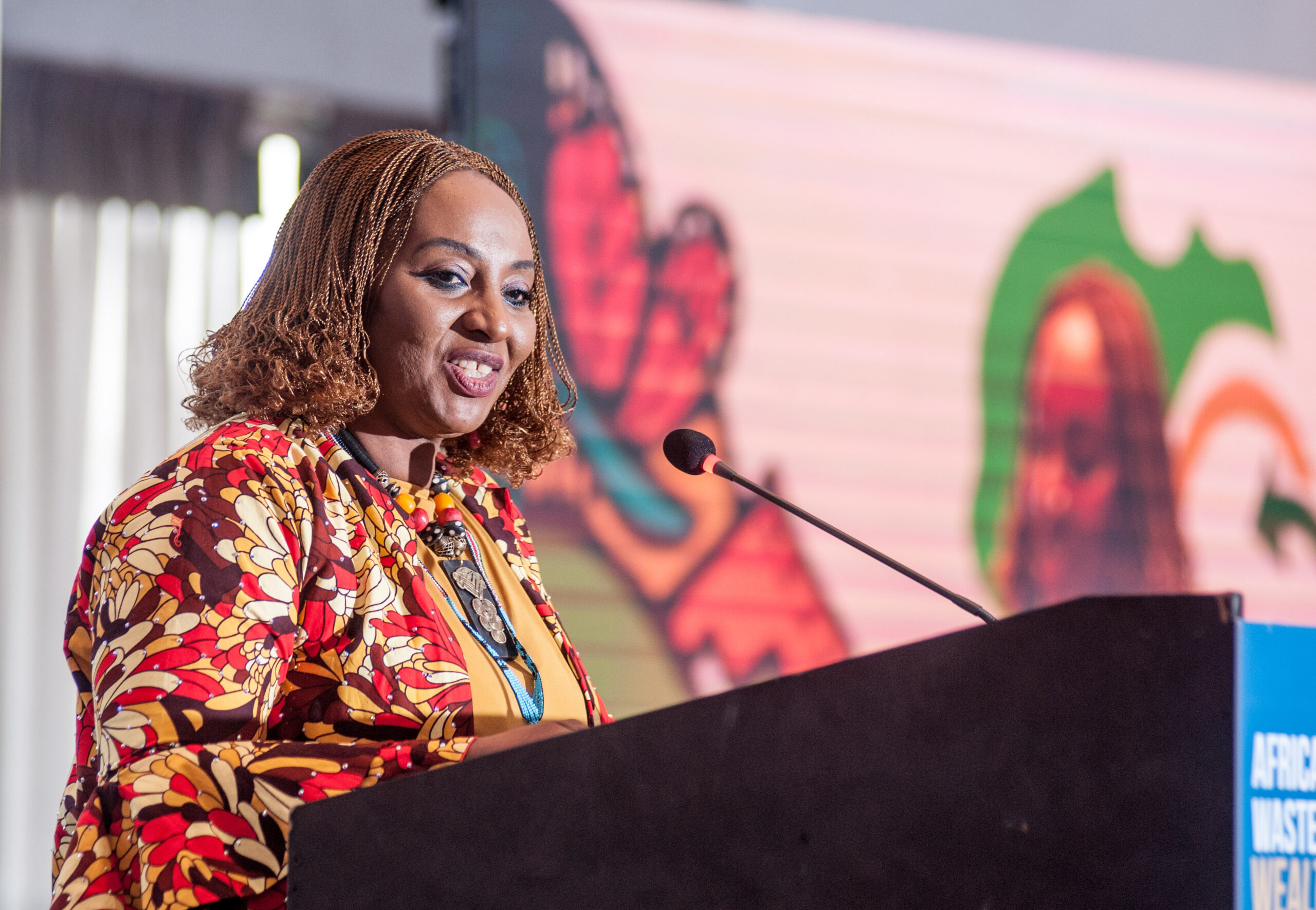
Dr Sheila Ochugboju, the Executive Director of the Alliance for Science, acknowledged the growing vulnerabilities of the world, including climate change, conflicts, and rising input costs.
According to her, the symposium aimed to honor innovators and innovations in Africa.
“With an increasing demand for food and limited resources, we need better and more efficient ways to produce food using all available tools.”
She emphasized the willpower of Africans, who constantly face challenges yet are determined to achieve their goal of eradicating hunger.
“Everywhere, our agricultural systems are being challenged and strained, but one thing we can rely on is to give farmers good seeds, if we invest in good inputs, there would be an agricultural transformation, and we can see the possibility of ending hunger in our lifetime,” she said.
Africa has yet to fully tap into its agricultural potential and can produce two to three times more cereals and other staple crops.
Eight African countries, including Nigeria, South Africa, Ghana Ethiopia, Kenya, Malawi, Sudan, and Eswatini, have approved or commercialized four genetically modified crops focusing on pest resistance and drought tolerance.
The crops are maize, cotton, soybean, and cowpea.
Thirty-three additional genetically modified crops are currently undergoing trials in ten other African countries.
The GM crops market in Africa was valued at approximately 615.4 million dollars in 2018 and is expected to grow by five percent, reaching an estimated 871 million dollars by 2025.
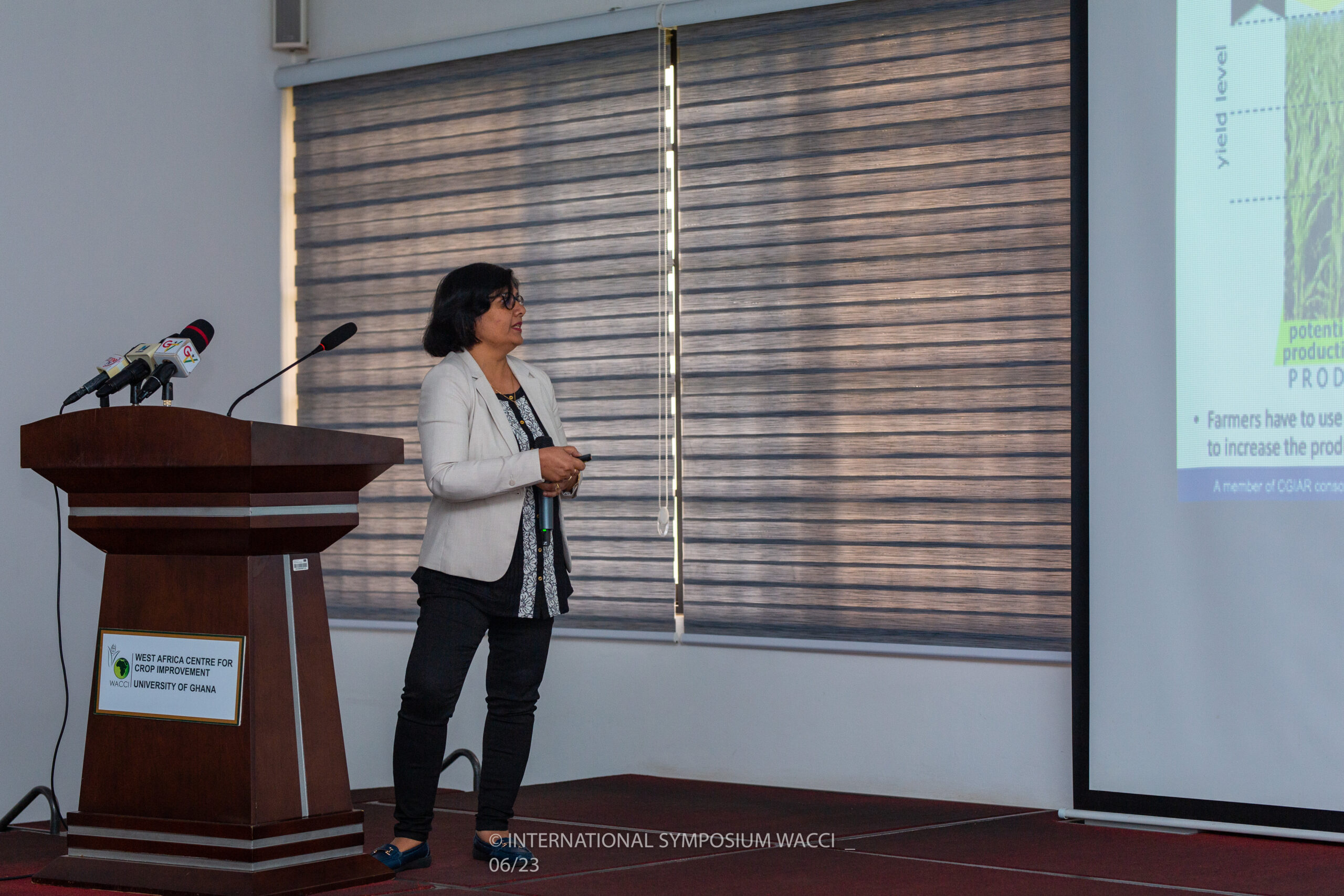
In the keynote address, Dr Leena Tripathi, the Eastern Africa Director of the International Institute of Tropical Agriculture (IITA) and Leader of the Biotechnology Program said Africa has yet to fully tap into its agricultural potential and can produce two to three times more cereals and other staple crops.
She said by doing so, we could potentially increase global output by up to 20 percent, to benefit not only Africa but the world.
“We need to try innovative approaches, combined with traditional knowledge, to increase production, enhance nutrition, and build climate resilience.”
She added that to achieve this, we require access to essential elements such as high-quality seeds, fertilizers, irrigation, improved soils, research and development, extension services, and the market.
“We need to try innovative approaches, combined with traditional knowledge, to increase production to close the gap, enhance nutrition, and build climate resilience,” Tripathi said.
“With an increasing demand for food and limited resources, we need better and more efficient ways to produce food using all available tools, including NBTs such as transgenics and genome editing.”
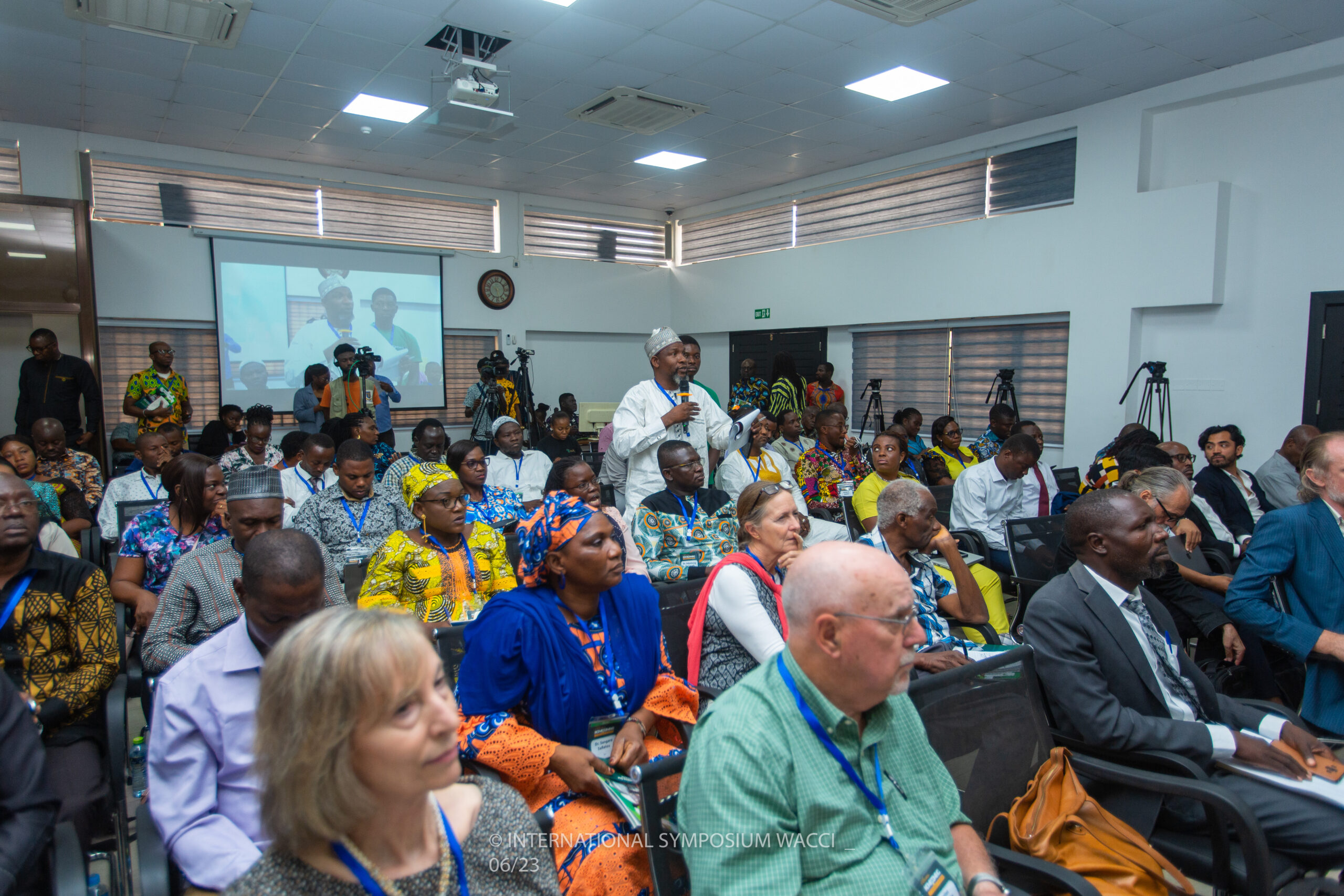
The symposium featured 25 speakers from approximately 20 different countries who shared their insights on how agricultural sector stakeholders can enhance farmer access to crops produced through NBTs.
Among the speakers were esteemed individuals such as Prof Giles Oldroyd, Director of Crop Science Centre at the University of Cambridge in the UK, Dr Michael Osae, Director of Biotechnology and Nuclear Agriculture Research Institute in Ghana, Dr Nigel Taylor, Principal Investigator of the Virus Resistant Cassava for Africa (VIRCA) Deployment Project at the Danforth Center in Missouri, US, Prof Kwame Offei, Director of Biotechnology Centre at the University of Ghana, and Dr Murenga Mwimali, team leader of Product Development at TELA Maize Project in Kenya.
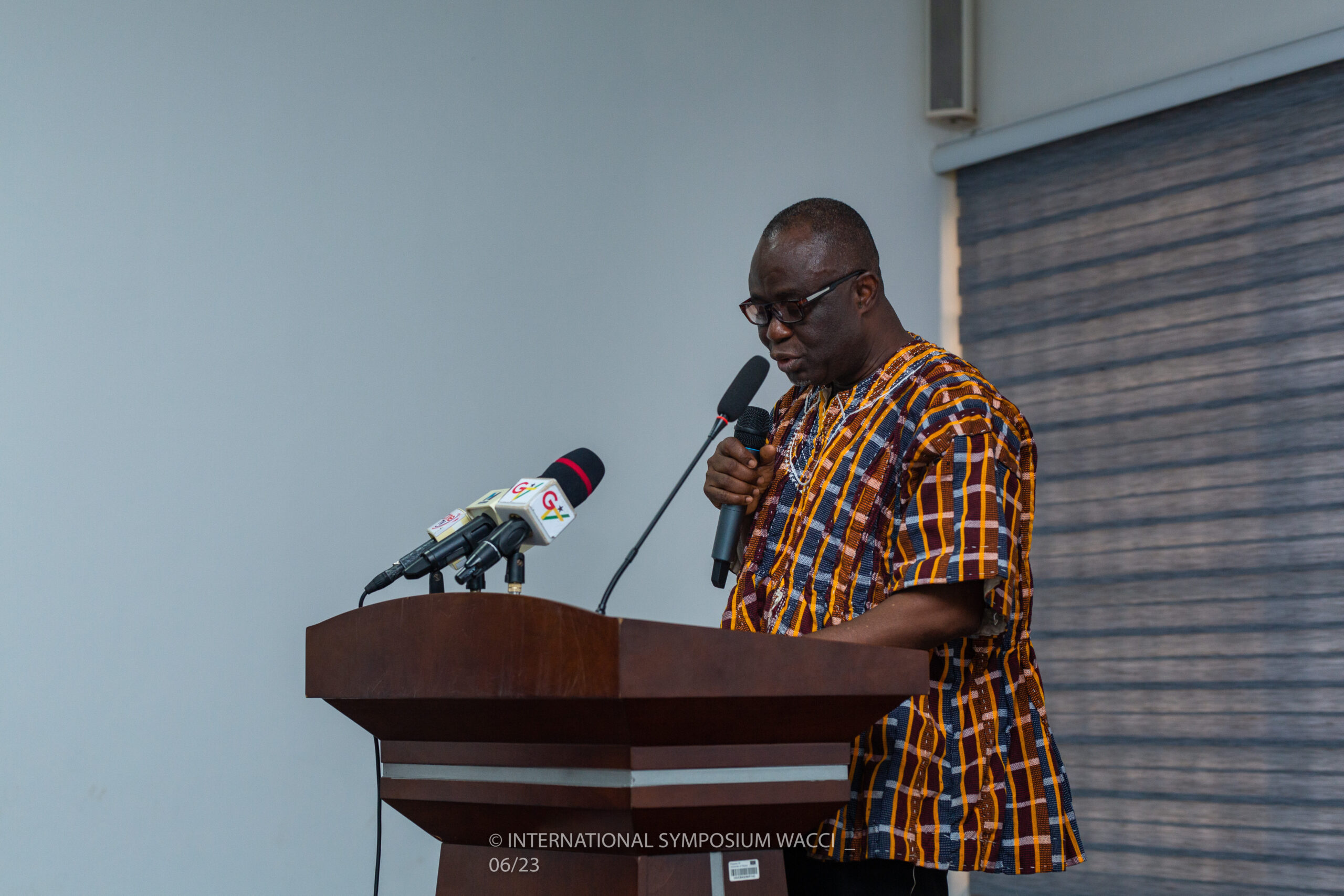
Yaw Frimpong Addo, Ghana’s Deputy Minister for Crops in the Ministry of Food and Agriculture, was also in attendance.
